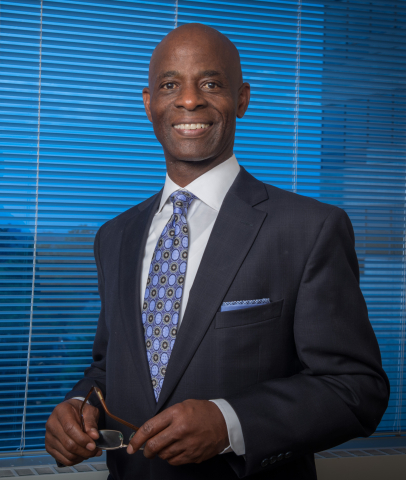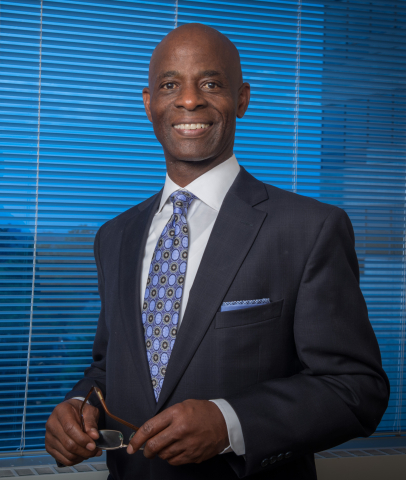RADNOR, Pa.--(BUSINESS WIRE)--The pandemic continues to create financial challenges for all Americans, but research from Lincoln Financial Group (NYSE: LNC) shows that minorities are among those hit hardest. The company’s October 2020 Consumer Sentiment Tracker found Black consumers (32%) are most likely to have experienced job loss as a result of the pandemic – a situation that inevitably contributes to their top financial concerns of not having enough emergency savings (42%) and not being able to cover day-to-day expenses (41%).
The Crisis Drives Change
Black Americans went on to express their current financial mindset is most impacted by the events of recent months. According to the research, 74% are planning to make permanent changes to the way they spend and save due to the COVID-19 crisis. Furthermore, 75% are planning for their financial future differently as a result of the pandemic, prompting a growing appetite for financial planning resources. Black consumers (67%) are most likely to say they are reading and learning about financial markets and investing, as well as thinking about whether they have the right insurance (61%). This is a solid foundation to build upon in order to create positive financial outcomes.
“Our goal is to help Black Americans and all consumers understand the importance of saving for retirement and creating generational wealth, as well as educate on how to take those first steps toward making it reality,” said Eric D. Bailey CFP®, founder of Bailey Wealth Advisors in Silver Spring, Md. and a registered representative of Lincoln Financial Advisors. “By tapping into online budgeting tools, calculators and other resources, people can make small changes that really add up in the long run. A financial plan doesn’t have to be complicated—I like to think of it as a roadmap to ensure you’re on track to achieving the life you envision for the future.”
Three Tips to Build Wealth
Bailey offers three recommendations to help both Black consumers and all Americans build wealth and achieve the retirement they envision for themselves and their families:
- Focus on education and financial literacy – from a young age. In a consumer-driven economy, it is important to recognize the benefits, as well as the challenges, that money presents. For example, first-time credit card users may not understand compound interest rates or the consequences of bad credit until it is much too late. Learning the true value of proper budgeting, credit worthiness and smart money management early is the foundation for a lifetime of good financial habits.
- Make longevity planning a priority. Building and sustaining wealth is a process, one in which consumers should match lifelong financial goals to life expectancy. This requires strategic planning and a true desire to create a legacy for oneself, family and community. Consumers should address any unique financial needs early to help ensure that every aspect of their wealth picture is understood and incorporated into their long-term plan. The sooner the process starts, the stronger the outcome.
- Meet with a financial professional. A financial professional can provide valued expertise that fits a consumer’s specific situation and goals. Certified Financial Professionals (CFPs) in particular have special training and expertise in interpreting today’s complicated tax strategies, insurance options and economic forecasts in a way that strategically meets consumers’ uniquely personal needs.
Translating Optimism into Outcomes
The study went on to show that Black consumers express the most positive feelings—hopeful (28%), interested (22%) and opportunistic (17%)—when it comes to financial planning. They prefer to learn about financial products by seeking out advice from a financial professional (39%) followed by financial services companies (28%).
“While it’s good news that more Black Americans are feeling optimistic, the research also indicates there is still work to be done,” said Bailey. “Unfortunately, the wealth gap for African Americans remains significant. In addition, when insurance and retirement solutions fall lower on the priority list due to a crisis like job loss, it then affects long-term financial outcomes for people and their families. For that reason, we are committed to educating the community about the importance of planning for their financial future.”
Bailey and his practice are not alone in their commitment to the Black community. In September 2020, Lincoln Financial Group announced its plan to amplify the company’s ongoing commitment to diversity and inclusion and drive meaningful, measurable change. As part of that long-term plan, Lincoln will continue to grow its professional network of Black financial advisors and planners to support advisor recruiting and development efforts, and to help define new strategies for supporting Black clients.
Visit www.lincolnfinancial.com for more tools, resources and other tips on how to protect the ones you love the most.
About Lincoln Financial Group
Lincoln Financial Group provides advice and solutions that help people take charge of their financial lives with confidence and optimism. Today, more than 17 million customers trust our retirement, insurance and wealth protection expertise to help address their lifestyle, savings and income goals, and guard against long-term care expenses. Headquartered in Radnor, Pennsylvania, Lincoln Financial Group is the marketing name for Lincoln National Corporation (NYSE:LNC) and its affiliates. The company had $303 billion in end-of-period account values as of December 31, 2020. Lincoln Financial Group is a committed corporate citizen included on major sustainability indices including the Dow Jones Sustainability Index North America and FTSE4Good. Dedicated to diversity and inclusion, we earned perfect 100 percent scores on the Corporate Equality Index and the Disability Equality Index, and rank among Forbes’ World’s Best Employers, Best Large Employers, Best Employers for Diversity, and Best Employers for Women, and Newsweek’s Most Responsible Companies. Learn more at: www.LincolnFinancial.com. Follow us on Facebook, Twitter, LinkedIn, and Instagram. Sign up for email alerts at http://newsroom.lfg.com.
Eric Bailey is a registered representative of, and Bailey Wealth Advisors is a marketing name for registered representatives of, Lincoln Financial Advisors. Securities and investment advisory services offered through Lincoln Financial Advisors Corp., a broker-dealer and registered investment advisor, member SIPC.
LCN-3441926-020821




